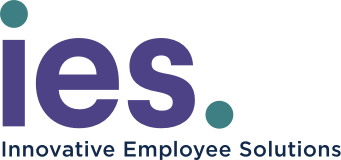Peter Limone, CPA, CGMA – President and CFO
In the world of employment there’s no bigger risk than being uninformed. As a way of example let’s presume you did not keep up with ACA mandates and you have 80 full time employees in 2016. If you are not compliant with this law, you may be subject to a $108,000 penalty and that’s just for starters. In addition, for each employee who signed up at an exchange and received subsidy, you may owe $3,240. If that isn’t enough, the employee could be assessed $2,085 per family member for not carrying health insurance.
State and Federal exchanges were tasked with notifying employers when one of their employees qualified for a subsidy, therefore notifying the employer that they may owe a penalty. The notices were meant to inform the employer of the potential for a penalty and give the employer an opportunity to challenge the penalty. The exchanges have yet to send notices for 2015 and do not expect to send them until late spring 2016. ACA is only one law to contend with at the federal level.
There are many jurisdictions outside of the federal level that have their own laws and they are constantly evolving. Minimum wage laws are a perfect example of the mixture of issues your payroll and HR departments must comply with:
- Nevada has two different minimum wage rates, based on if the employer provides health insurance. As of January 1 2016, the minimum wage for employees who receive qualified health insurance is $7.25 per hour. The minimum wage rate for those who do not receive qualified health insurance is $8.25 per hour.
- On March 14, 2016, Pasadena City passed an ordinance to increase the city’s minimum wage. Beginning on July 1, 2016, employers with 26 or more employees must pay a minimum wage of $10.50 per hour to all employees within the city. The minimum wage will increase to $12.00 per hour on July 1, 2017, and $13.25 per hour on July 1, 2018.
- Oregon Rural areas will increase wages from $9.25 to $12.50 by 2022. The state will generally use a base wage, which will increase to $13.50 by 2022. In the Portland area wages will increase to $14.75 by 2022. Thereafter wages will increase based on inflation with some adjustment reserved for the Portland area.
- While the New Mexico statewide minimum wage is $7.50, the city of Santa Fe announced minimum wage will increase by 0.68 percent to $10.91 an hour.
What about paid sick leave?
- Oregon provides paid sick leave, along with California, Connecticut, and Massachusetts.
- Montgomery County, MD also enacted a paid sick leave law. There are more than 3,000 counties in the United States, could you imagine the patchwork of laws potentially brewing?
- New Brunswick and Elizabeth, both in New Jersey—just passed paid sick leave ordinances. That brings the total to 11 New Jersey cities with paid sick leave laws.
- San Diego will vote on a paid sick leave referendum in June.
- President Obama signed an Executive Order requiring certain federal contractors to provide employees with up to seven days of paid sick leave.
The above examples are not meant as a comprehensive list of either minimum wage or paid sick leave laws. Rather, it intends to show how many variations there can be depending on where your employees work.
At the federal level, the following are some of the most prominent laws: Internal Revenue Code (Code); the Employee Retirement Income Security Act (ERISA); the Health Insurance Portability and Accountability Act (HIPAA); the Family Medical Leave Act (FMLA); Title VII of the Civil Rights Act of 1964; the Americans with Disabilities Act; the Fair Labor Standards Act; the Consolidated Omnibus Budget Reconciliation Act (COBRA); the Uniformed Services Employment and Reemployment Rights Act of 1994; and, as set forth below, the Patient Protection and Affordable Care Act (ACA). In addition, you must also comply with state, regional authorities, counties, parishes, and city laws.
Unless you have an army of Human Resource professionals and Employment attorneys on staff, it would be nearly impossible to keep up with existing as well as the ever changing employment and payroll laws. It’s always prudent to have reputable sources such as the American Staffing Association or Society for Human Resource Management to help stay up to date.
Another way to keep up to date is to outsource this function. For the most part a business cannot completely outsource its risk associated with employment. However, employer of record companies, also known as payrolling companies, can significantly reduce the risk. Furthermore, a good, reputable, employer of record will provide indemnification for many risks.
An experienced employer of record can help you avoid expensive issues that may arise with your contract or contingent workers. Reach out to the friendly experts at Innovative Employee Solutions for further assistance.






